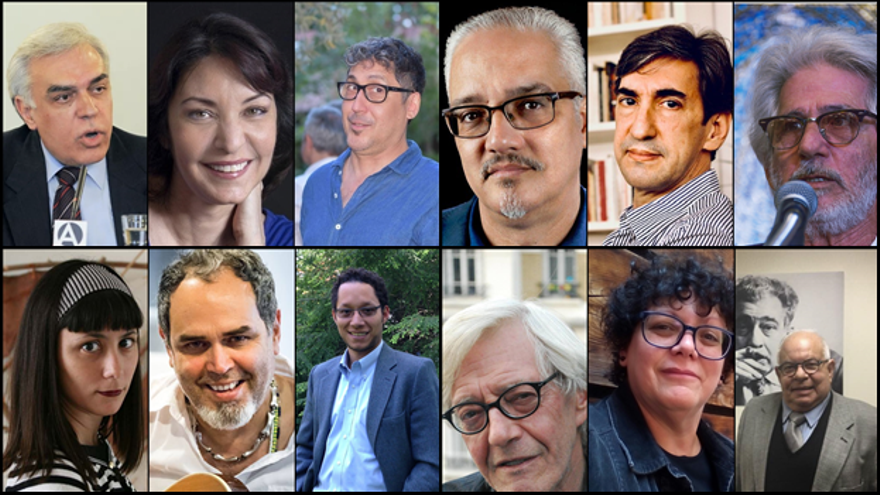
![]() 14ymedio, Havana, 11 July 2022 — Thousands of Cubans in exile joined their compatriots on the island in the surprise and hope entailed in 11 July 2021. A year after those historic demonstrations, 14ymedio asked 15 of them – artists, writers, historians – what did 11J mean, how did they experience it from a distance, and whether they think another social outburst is coming soon?
14ymedio, Havana, 11 July 2022 — Thousands of Cubans in exile joined their compatriots on the island in the surprise and hope entailed in 11 July 2021. A year after those historic demonstrations, 14ymedio asked 15 of them – artists, writers, historians – what did 11J mean, how did they experience it from a distance, and whether they think another social outburst is coming soon?
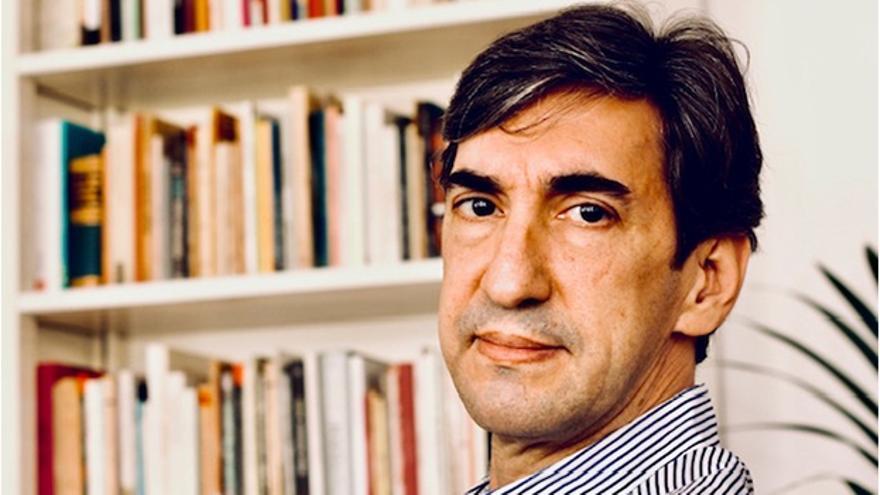
Ernesto Hernández Busto (poet, essayist and translator, Barcelona): “The taboo of ‘the street belongs to revolutionaries’ was broken.”
I covered the events for a digital newspaper, so I forced myself to watch all the videos that flooded the networks in almost real time. I confess that I was surprised, not only by the magnitude and extension of the protests but also by the clearly political slogans. It was as if a curse had been broken. I also realized that the protesters themselves were surprised at what they had done, what they had achieved. They didn’t quite know what to do with that oppositional energy. Shortly after, when the authorities (also surprised) reacted, it was too late to achieve the change. Repression began again, turned into a struggle for the survival of the dominant caste. And we began to see how those same videos that had made us scream with emotion were used to hunt down protesters. In any event, the taboo of “the street belongs to the revolutionaries” was broken, the idea that in Cuba there was never going to be a protest in the streets of that magnitude, and the omnipotence of State Security and the repressive forces. It was important to see the spectrum of those who criticized the repression, something decisively cracked. Unfortunately, the regime has preferred to “learn a lesson” and flee forward. That is, to nowhere.
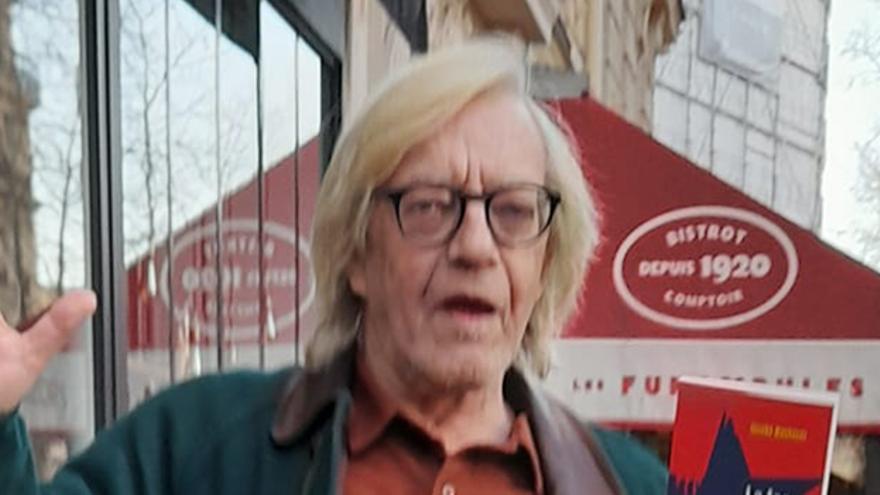
Jacobo Machover (writer and professor of Hispanic literature, Paris): “Time is running out for those who keep our people in oppression and misery.”
For me, 11J was a total surprise, but so hopeful… I found out in Paris through messages and videos, posted by dissidents from inside and outside the island who appeared through social networks. They all listed the places where these spontaneous movements were taking place. Friendly journalists kept me up to date in real time. What I asked myself at that time was: how to help? With words, of course, speaking out in the media that offered me that opportunity. I wrote the story of a dream in which the aspirations to freedom were becoming a reality and I found myself in a dilapidated Havana walking with my people, as if time, almost six decades of exile, had not passed. Many former prisoners, and poets and artists, who died in exile, came to mind. The Cubans who remain inside the country will continue to leave by all means, risking their lives, which constitutes, in my opinion, another form of rebellion. And time is running out for those who keep our people in oppression and misery. I don’t know if I’ll ever see another day like that. It is not necessary to remain in a mere commemoration. Many of its protagonists are still in prison, but I think there has been a turnaround in terms of glimpsing something new in the future, both on the Island and in exile. Our Cuba is everywhere. Many of its protagonists are still in prison, but I think there has been a turnaround in terms of glimpsing something new in the future, both on the Island and in exile. Our Cuba is everywhere.
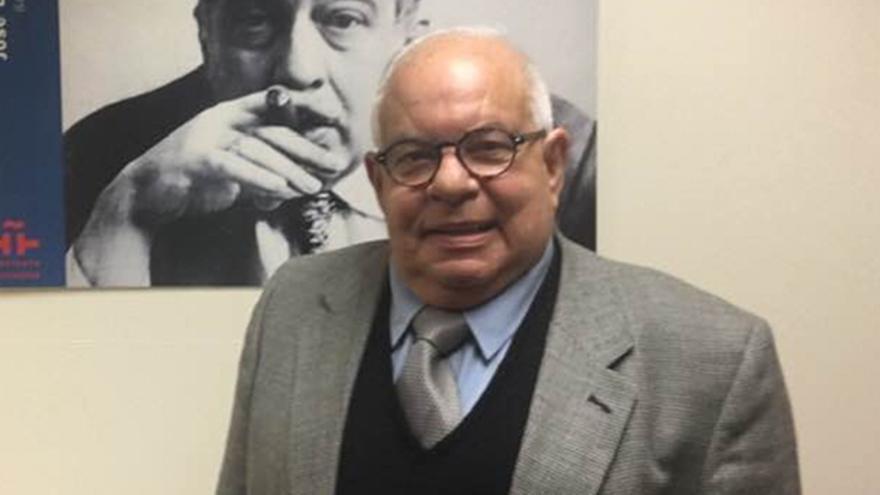
José Prats Sariol (writer, Miami): “I neither fear nor desire a bloodbath, it has never been in our traditions”
11J was an eloquent symptom of the objective situation of the country, of the state of mind of the population, especially of the young people and their frustrations, faced with the option of resigning themselves or fleeing. I watched it, from here, in Aventura, northeast of Miami. I am an outcast who maintains his umbilical cord. I think such messy outbursts don’t usually succeed. I was always pessimistic, I have never underestimated the officials of Minint [State Security] and their amanuenses in the Party and the bureaucratic apparatus, including the Ministry of Culture. The triumphalist ruckus of a certain exile was laughable. (By the way, I thank 14ymedio for their news articles and opinion pieces, thermometers without sweetening). Perhaps another social outburst should provoke – wishful thinking – some commander of the troops to refuse to repress, serving as an argument to accelerate changes in the Military Junta and cause apertures, which would benefit the surreptitious progressive sector within the ruling elite. I neither fear nor desire a bloodbath, it has never been in our traditions. In addition, it would be necessary to have a face of asbestos to incite the combat from Miami.
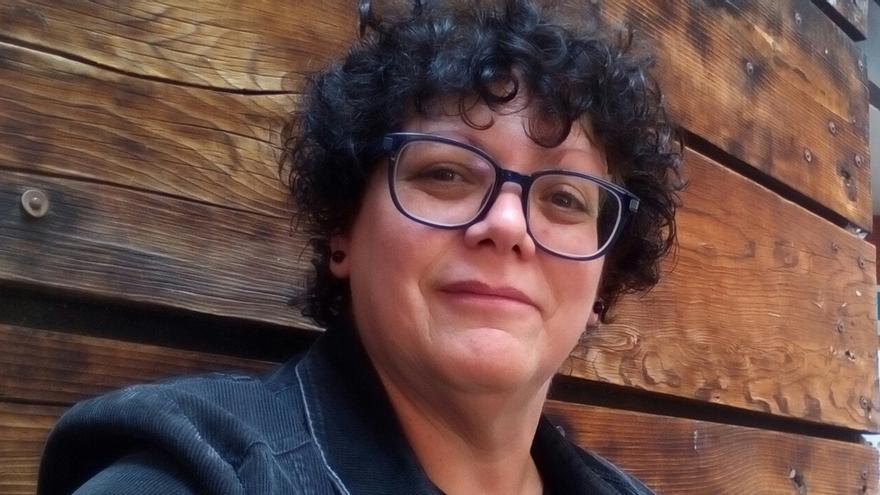
Odette Alonso (poet and narrator, Mexico City): “All those young people who could protest the situation in the country are already in the United States.”
On July 11 (2021), we were at my in-laws’ house, having the traditional Sunday lunch, when messages began to arrive from family and friends warning that something was happening in Cuba. We immediately connected to social networks, where there were already many live broadcasts from various cities on the island, reporting on the popular demonstrations that were taking place and the police repression that was beginning. The Maleconazo of 1994, its only historical precedent, had been an event limited to the area of Central Havana, where it happened, and was repressed in a matter of hours, without repercussion in the media (what was known about was shared from mouth to mouth). This, on the other hand, was something massive, national, and it was being seen, instantly, live, all over the world. In a short time, the Mexican news channels were also broadcasting it, and while we watched it, we had an endless conversation about the lurid details, unintelligible to a non-Cuban, of how life in Cuba has been and is, full of restrictions, surveillance, repression and misery. As a consequence of these events, the Cuban government has returned to doing what it has always done: “exemplary” trials, punishing sentences and opening the escape valve: the mass migration bridge through Nicaragua, through which almost 150,000 people have left in the space of a year. All those young people who could protest the situation in the country are already in the United States.
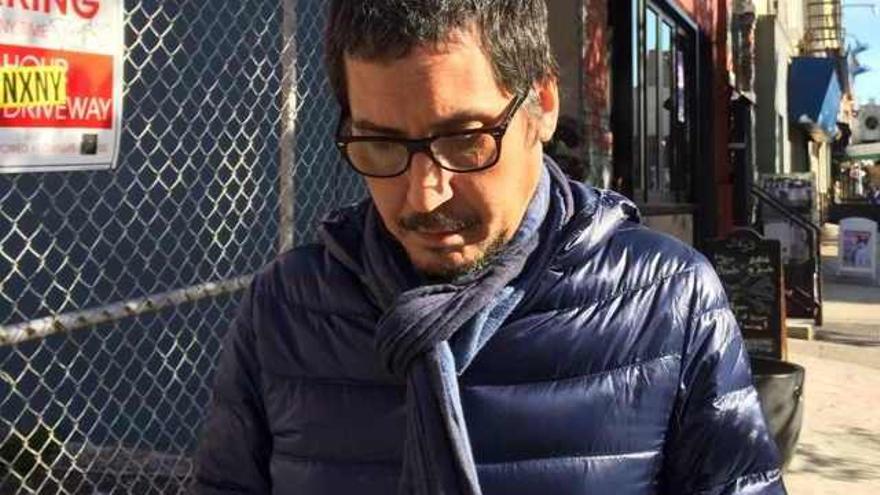
Jorge Ferrer (writer and translator, Barcelona): “I don’t know if I should continue feeding illusions about the future of post-Castroism”
I am not a man who spends a lot of time on the beach, but when on August 5, 1994, people overflowed the streets on the so-called Maleconazo, I was spending a few days in Platja d’Aro, in the north of Catalonia. So, I had just moved to Spain and I had the bitter feeling, following the events of that month on the pages of the newspapers, that I was missing something that I almost got to live. A bitter feeling, one of those that herald, in the political history of Cuba, even harsher bitterness. Twenty-seven years later, twenty-seven!, on 11J, in another but at the same time the same Cuba, a new citizen uprising found me in another house on the beach, in the Ebro Delta, this time with reality spilling out of the smartphones. Now without the feeling that I had lost something, but with the burning illusion that others could win it. The balance of 11J, a protest resulting from that mixture of rage and despair that produces the best cocktails, although it seems it is not the “Cuba libre,” is well known: one death, hundreds detained and prosecuted, thousands of people fleeing in terror from that island. More pain, more State violence, a more ostentatious display of the brutal control that the repressive apparatus exercises over the country. So I don’t know if I should continue feeding illusions about the future of post-Castroism, adding prefixes to the name of that curse, but it does seem that it’s convenient that from time to time I go on vacation to the beach.
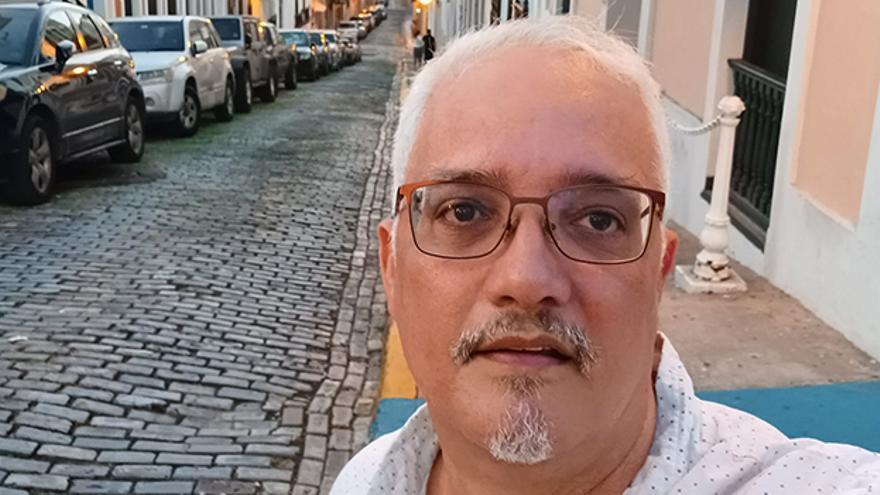
Enrique del Risco (historian and writer, New Jersey): “The day of the almost unanimous loss of fear in a country corroded by the terror of disobeying”
11J is the most important date in Cuban history since January 1, 1959. Although apparently nothing has been achieved, what was achieved that day was enormous: it was the day of the almost unanimous loss of fear in a country corroded by fear of disobeying. I lived it almost in real time, within the limitations imposed by the distance of residing in the north, in the United States. I immediately saw the videos that were being broadcast on Facebook at the time and the impression was unequivocal: people were marching peacefully, but chanting very clear slogans such as “down with the PCC” [Cuban Communist Party] and “Freedom,” very far from the interpretation that was later given by the foreign press, which presented it as a strictly economic protest. In the midst of the surprise, it became clear to many of us that we had to show our immediate support for what, at that time, were still scattered demonstrations in San Antonio and Palma Soriano, so a group of friends agreed to demonstrate at two in the afternoon of that same Sunday in Times Square, in midtown Manhattan. That moment was one of immense joy and hope. I doubt that another social explosion will be repeated soon, because the decisive condition of 11J was the surprise factor. Since then the regime has been preparing so that it does not happen again. But if we were already wrong last year, thinking that something like this would never happen, we might as well be wrong again.
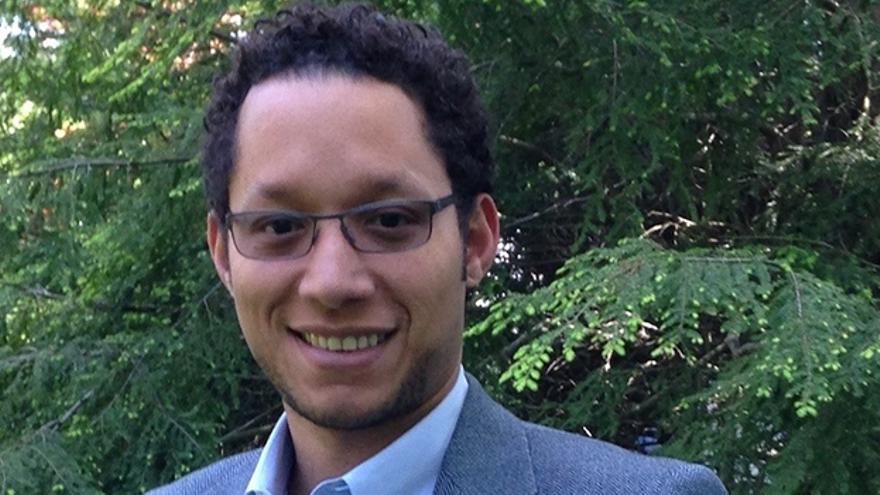
Alexis Romay (poet and storyteller, New Jersey): “The Cuba of the future began for all to see that day”
11J was a watershed. As much as that stagnant political system weighed in the 70s, the Cuba of the future began that day in front of everyone. And that possible Cuba has been revealed to us not only in the courage of those who once again stepped onto the streets of what was that bloody land, but also in the attitude of the relatives of the hundreds of people arrested for the protests. July 11th exposed the repressive nature of the government that Díaz-Canel has inherited as if it were a relic. Enthusiasts from all over the world have run out of the excuse that this revolution is of the humble and for the humble or that they didn’t know what was happening. At the beginning of the nineties, Willy Chirino cured me of the desire to predict the sociopolitical future of the Island. Nuestro Día Ya Viene Llegando [Our Day is Coming] is about to turn 30. Therefore, I am reluctant to predict the future of Cuba. Two things are clear to me: that it is not up to me, from exile, to summon or ask anyone to take to the streets to protest against that despicable regime. And that when the people on the Island take to the streets to demand their rights – which are mine – my duty will be to support and amplify those voices that dream of a Cuba with all and for the good of all.
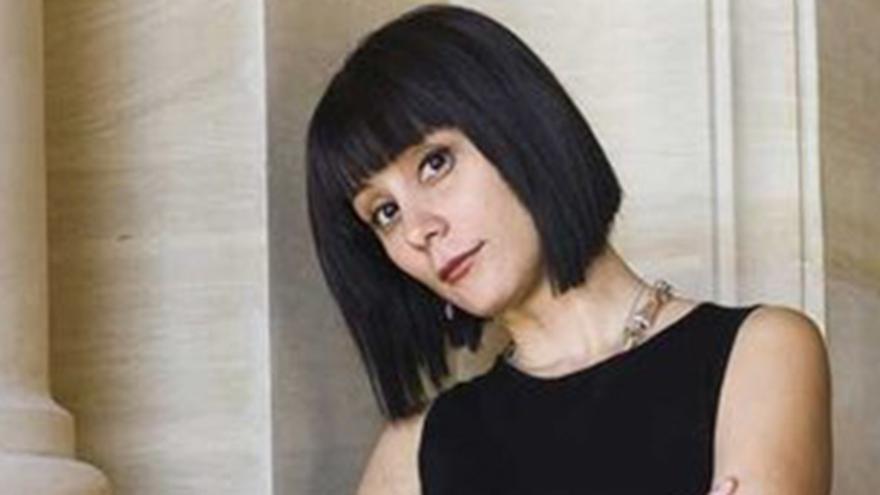
Wendy Guerra (writer, Miami): “There is an infinite Cuba that is there, like a ticking time bomb, in the heads of Cubans.”
July 11 meant for me the certainty that the Revolution is not the history of Cuba, that there is an insurrectionary life before and after 1959. Seeing those bodies, which seemed painted by Goya, crossing the light unarmed but with the face of mambises, it was for me to return to the true homeland, the homeland that has no government, that has absolutely no commitment to any party, but to the legitimacy of that same sea and that same land that makes us an island and makes us its children. For me it was tears, it was joy, it was anger for not being there at that moment, walking, with worn sandals, along the edge of the Malecón like someone walking on the edge of a razor. There is a before and after. There is an infinite Cuba that is there, like a ticking time bomb, in the heads of Cubans, trying to resurface every day from their daily sorrows.

Manuel Vázquez Portal (poet, journalist and former prisoner of the Black Spring, Miami): “July 11 has not ended, it just started in 2021.”
11J was the renewal of hope, the resurrection of my People, the young people taking control of their dreams. As if distance did not exist, I was in every cry of my people, I suffered every blow they received, I suffer their cells with them, the men and women. I lived it in my house, in Miami. Facebook notified me of the first broadcast from San Antonio de los Baños. And from then on, I saw how each city joined in. I loved the internet like never before and the kids who know how to use it. I was surprised even though I yearned for it. I knew it was the end of the dictatorship. The beginning of another era. Social networks are the end of the information monopoly. Thanks, internet. July 11 is not over, it just started in 2021. Goodbye, dictatorship. There is no return.
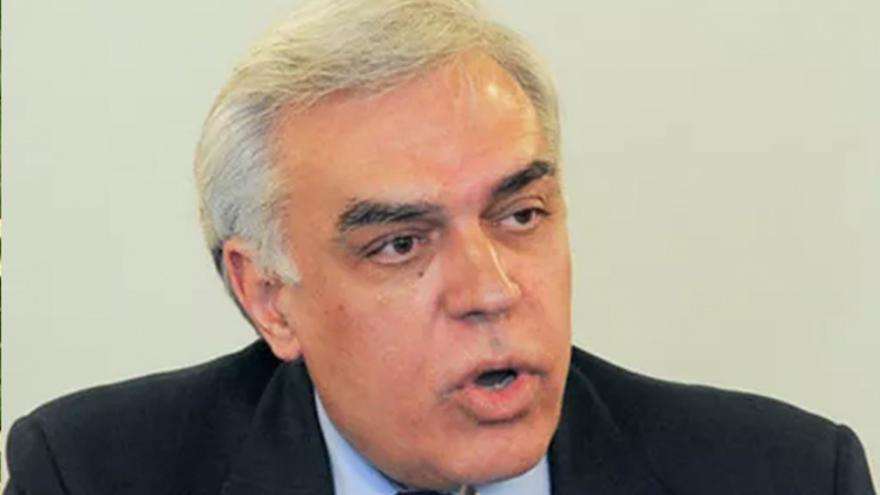
Antonio Guedes (doctor, Madrid): “I wasn’t surprised, I knew something like this would have to happen soon.”
July 11 was the spontaneous outburst of the Cuban people after 62 years of dictatorship (what the youth asked in the street was “down with communism”), the lack of hope in a better future and the conviction and endemic inefficiency of the regime. I lived it with some hope during a youth that had said enough, but at the same time aware that, with the intense repression, it would not be the end of the dictatorship. I wasn’t surprised, I knew something like this would have to happen soon. The suffocating lack of freedom, the economic deterioration caused by a system incapable of generating development, plus the convergence of the pandemic, the significant decrease in aid from Venezuela and other aspects, pushed Cubans to the limit, causing the first major manifestation of protest of the Cuban people. I was informed by the Cuban independent media (14ymedio, Diario de Cuba, Cubanet), Spanish and American newspapers, DW from Germany, WhatsApp messages, the phone, and some journalist who called me. A protest like this will surely happen again, but its success will depend on the spontaneity and resilience of the people in staying on the streets. This will lead to greater conflicts with the Cuban political/economic/military command.

Daína Chaviano (writer, Miami): “When those civilians decide to confront the police en masse, things could be different.”
11J was a kind of “prologue to a death foretold,” the result of decades of famine, outrages and unfulfilled promises that have ended any glimmer of hope. However, although it was something that was seen coming, I think it surprised us all. It was such a spontaneous reaction that it caught the authorities themselves off guard. I will never forget the images of the stunned police officers, silently contemplating the parade of angry citizens shouting anti-government slogans. I found out what was happening through the videos that appeared on the internet. It was a day that I lived with a lot of anguish, because I was waiting for the repressive response of the regime. I have no doubt that, at any moment, there will be another social explosion. The problems that caused 11J, instead of diminishing, have been increasing. Every day new videos appear of Cuban mothers who ask for the freedom of their minor children, sentenced to years in prison just for protesting, or who complain about the lack of food, clothing and medicine for their children. I’m afraid that when it happens, people won’t just scream. The images showed that the number of protesters far exceeded the number of repressors. Some have predicted more violent protests, with people protecting their identity through masks. When it’s not about five cops beating up a defenseless civilian while 20 others look on, when those civilians decide to go head-to-head with the cops, things could be different.
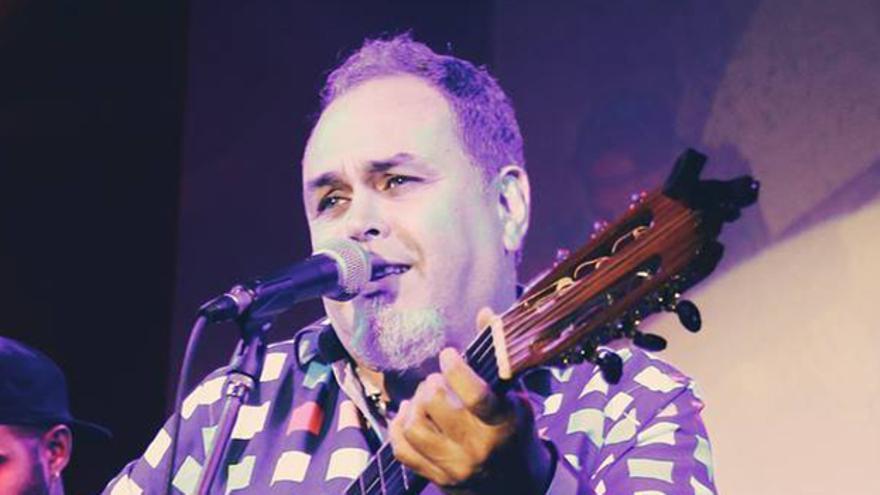
Pavel Urkiza (musician, Miami): “There is a before and after July 11.”
There is a before and after July 11, marking a milestone in the history of Cuba in the last 60 years. I do not believe that hope has died because the expected results were not achieved, because the repression has been so great that there has not been a change, even if it is gradual. Hope will never die even if the repression is deep. There are many people, and we are many people, inside Cuba and outside, and we are deeply desiring democracy. The people of Cuba can’t take it any more, and can’t sustain a dictatorship that violates human rights, annuls individuality, represses open and free thoughts that have been deep within the Cuban people for a long time. People said enough is enough and, if nothing happens this July 11, or in three months, or in four, five, six, a year, at some point something will happen, and finally we Cubans will once again participate in a democratic process within the Island that will lead us to a place of spiritual and economic wealth.

Ramón Fernández Larrea (writer, Miami): “Another social explosion is inevitable. How and where it will be, I don’t know.”
11J was something unexpected for me, an amazing and painful event that illustrated the deep disappointment of the people and the tremendous degree of poverty and hopelessness of Cubans. It was a warning that still has the dictatorship trembling and wondering how it could have happened to them. I lived it with intensity and nervousness. Although those who lived in areas like El Vedado [Havana] never found out, I lived through each explosion in a chain in different places in Cuba. It was like a fuse that was exploding. I worked, like I do every day, in my house in Miami Beach. In one of the frequent entries I made to Facebook to promote the radio program I do every week, I saw the first images that someone had just uploaded to the internet from San Antonio de los Baños. I stopped everything and started searching the net. I was very, very surprised. I sensed that the game was closer than ever. That the pandemic had scared away the only chance Cuba has, tourism, and those who suffered the most were the ones who jumped first: the poorest, the neglected, the young people who no longer believe in any more promises. Another social explosion is inevitable. How and where it will be, I do not know. The dictatorship has put everything into repression. They want to scare and intimidate. Some of their blackmail and deportations have gone well for them, but it’s like the joke: it doesn’t matter that there are many colonels, disenchantment overwhelms them because it is general.

Adolfo Fernández Sainz (independent journalist and former prisoner of the Black Spring, Miami): “J11 was the confirmation that the people despised communism.”
For me, 11J was the realization that the people despised communism. I opened the phone that Sunday afternoon and saw what was happening. It was a tremendous surprise. Today everything is worse than a year ago and the conditions are there. But it was also evident that the regime did not stop in the face of the popular revolt and the reaction was cruel.
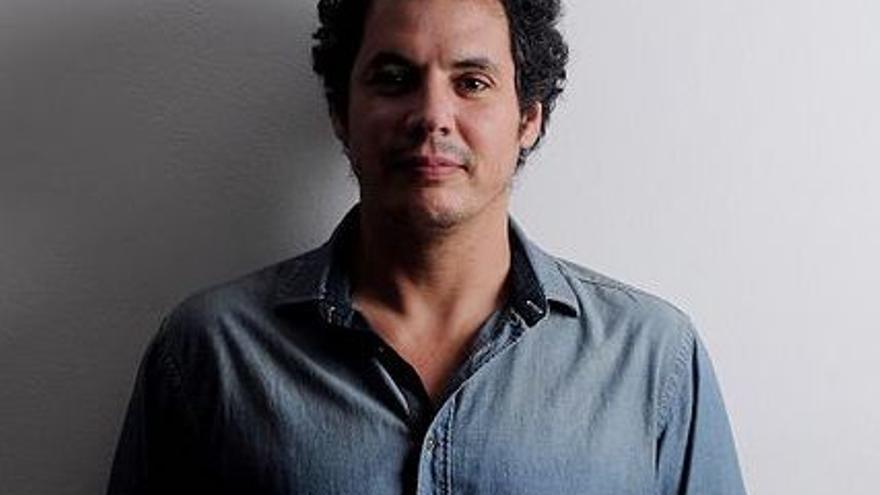
Camilo Venegas Yero (blogger, Dominican Republic): “The day will come when we have streets and schools called ’July 11’.”
I went for a bike ride on August 5, 1994. I was going along the Malecón and I managed to see the beginning of the demonstration. I pedaled hard to my house to hug my daughter. I celebrated ahead of time. We all know how that day ended, with Blas Roca re-editing the final scene of Memories of Underdevelopment. On July 11, 2021, I also came to believe that we would make it. I remember that I did not move from the screen all day. My country had never given me so much hope. Then came the digital blackout, savage repression, and finally house-to-house persecution of protesters. If the regime installed by Fidel Castro had an iota of legitimacy left, it renounced it after Miguel Díaz-Canel appeared on television to order a minority of Cubans to fight and repress a majority of Cubans. In Chile (a country that also suffered a dictatorship, although not as long as ours) thousands of young people took to the streets just like ours. Today the young Chileans who protested are in power. The Cubans, on the other hand, are in jail. The day will come when we have streets and schools called July 11. That date is likely to become a national holiday as well. I don’t know if the young people who are in prison today will come to power, but they will greatly inspire those who do. 11J for me is that hope.
____________
COLLABORATE WITH OUR WORK: The 14ymedio team is committed to practicing serious journalism that reflects Cuba’s reality in all its depth. Thank you for joining us on this long journey. We invite you to continue supporting us by becoming a member of 14ymedio now. Together we can continue transforming journalism in Cuba.
